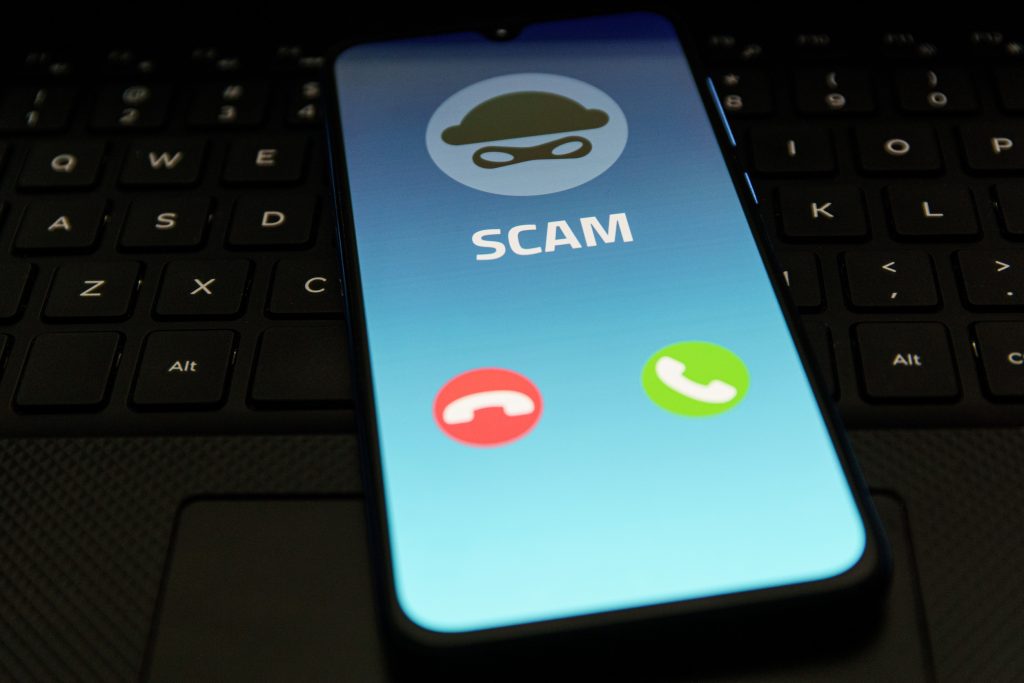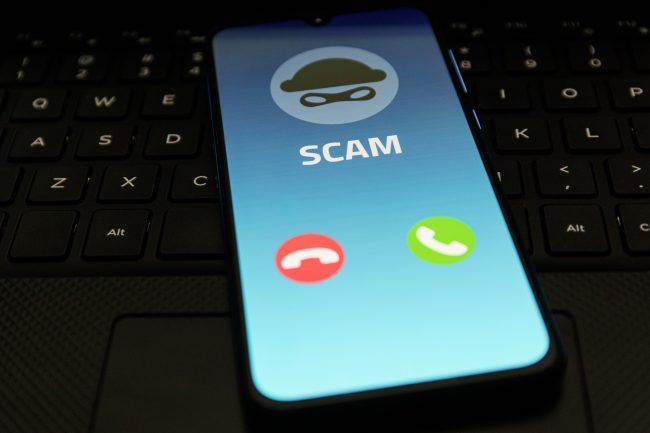
Your phone rings. The caller claims to be from your bank, the IRS, or a tech support company. Sounding official, they create a sense of urgency. For a moment, you might even believe them. Of course, that’s how scammers operate. They are, after all, masters of psychological manipulation who prey on our trust and our fear. In a world of sophisticated scams, your phone is a direct line for fraud. Therefore, knowing the red flags is your best defense. It helps you move from a position of fear to one of empowerment. Here are the phone call red flags that scream you’re talking to a scammer.
1. They Create Extreme Urgency or a Threat
Scammers don’t want you to think; instead, they want you to react. To do this, they will create a crisis that needs immediate action. For instance, you might be told your bank account is compromised or that a warrant is out for your arrest. A scammer may even claim a family member is in trouble. This sense of panic is specifically designed to override your rational thinking. Legitimate organizations, however, do not operate this way and will not threaten you over the phone.
2. They Ask You to Verify Your Identity with Personal Information
The caller says they are from your credit card company. Then, they ask you to confirm your identity by providing your full card number or social security number. This is a huge red flag. After all, if they called you, they should already have this information. In reality, this is a phishing attempt to steal your data. Therefore, never give out sensitive personal information to someone who has initiated the call.
3. They Demand Payment in an Unusual Form
The scammer says you owe money and insists you must pay immediately. However, the payment is demanded in a strange way. You will be asked to buy gift cards and read the numbers over the phone. Alternatively, they might request a wire transfer or cryptocurrency like Bitcoin. These payment methods are untraceable, which is precisely why scammers love them. Remember, no legitimate government agency or company will ever demand payment in gift cards.
4. The Caller ID Looks Real, But Something Is Off
The caller ID might show the name of your bank or a government agency. Unfortunately, scammers use a technology called “spoofing” to fake this information, which makes their call seem legitimate. However, a key giveaway is that they may not know basic information about you. For example, your name might be mispronounced, or they may not know your address. This is a clue that the caller ID is lying and is one of the most common phone call red flags today.
5. They Tell You That You’ve Won a Prize
You get an excited call announcing you’ve won a lottery or a sweepstake. It’s a huge prize, like a car or a vacation. But, there’s just one catch: you have to pay a small fee, which they’ll call a tax or a processing charge. This is always a scam. In fact, you should never have to pay money to receive a legitimate prize. They are simply trying to get your credit card information or a direct payment.
6. They Pressure You to Keep the Call a Secret
Scammers want to isolate you. Knowing that if you talk to someone else, that person might recognize the scam, they will consequently insist on secrecy. For instance, you might hear things like, “Don’t tell anyone about this, it’s a sensitive legal matter.” This is a manipulation tactic designed to prevent you from getting a second opinion from a trusted friend or family member.
7. They Can’t Provide a Real Call-Back Number
If you feel suspicious, tell the caller you will hang up and call them back through the official number listed on the company’s website. A scammer will immediately try to keep you on the line, making excuses or giving you a different number to call. This is a simple test that quickly exposes a fraudster. A legitimate employee, on the other hand, will understand your need for security and encourage you to call back through official channels.
When in Doubt, Just Hang Up
You do not owe strangers on the phone your time or your trust. It is not rude to hang up on a call that feels suspicious; in fact, it is smart. Scammers succeed by exploiting our politeness and our fear. However, by recognizing these phone call red flags, you take away their power. So, trust your intuition. If a call feels wrong, it probably is. Protect your information, protect your money, and hang up the phone.
What kind of scam calls have you received? Share in the comments to warn others.
What to Read Next…
- 8 Shockingly Random Moments You’re Most Likely to Get Scammed
- AI-Powered Scams Are Here: 5 New Threats That Look Too Real to Question
- 5 Local Scams Police Say Are Targeting Older Adults Right Now
- 9 New Scams Sweeping the Nation and How to Not Become a Victim
- 10 Things You Should Know About Facebook Marketplace Scams

Latrice is a dedicated professional with a rich background in social work, complemented by an Associate Degree in the field. Her journey has been uniquely shaped by the rewarding experience of being a stay-at-home mom to her two children, aged 13 and 5. This role has not only been a testament to her commitment to family but has also provided her with invaluable life lessons and insights.
As a mother, Latrice has embraced the opportunity to educate her children on essential life skills, with a special focus on financial literacy, the nuances of life, and the importance of inner peace.







